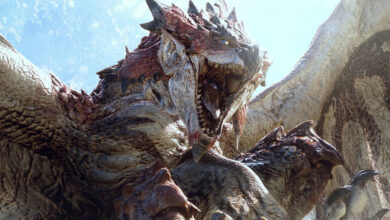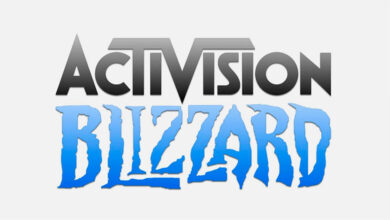Confira as notas da última edição da revista EDGE – 02/12/2021

Confira abaixo as notas dos reviews da revista britânica EDGE #366 em sua edição lançada hoje para assinantes.
Forza Horizon 5 [9]
“Whatever dystopian credit factory this landscape eventually becomes, right now Mexico is another dream showcase for Playground and its ability to find a sweet spot between the manual and the automatic: a world that accommodates you at (and on) every turn, while constantly egging you on to do something completely out of character. This one’s for the fast and the curious. Whiplash or no, brace yourself.”
Call Of Duty: Vanguard [6]
“Each protagonist has a softly applied special ability (Nightingale’s litheness, Arthur Kingsley’s squad commands, Wade Jackson’s ‘focused’ auto-aim) and they all combine in the final mission, in which you fly between perspectives and the story toggles to ‘blitz’ pacing. It’s a glimpse of what could have been – as is the closing scene, which hints at storylines with the tone of Wolfenstein or Indiana Jones. But any suggestion of a sequel is premature. This is a treacly origin story for a crew we wouldn’t bet on seeing again.”
Guardians Of The Galaxy [7]
“Not that you can stray far – or that you’ll find much when you do. Guardians keeps you strapped in for the ride, and while it does dip once too often, the emotional highs outweigh the patience-testing lows. And in places it really is emotional: for all their squabbling, these Guardians have heart to spare, as both story and systems find ways to let this found family help and support one another. They may do their fair share of running around, then, but to paraphrase a certain Newton-Le-Willows crooner, it’s clear this dysfunctional bunch will never give up, let down or desert one another.”
Riders Republic [7]
“Perhaps that’s because, in a console generation where convenience is king, this might just be its quintessence. Whether you want to dart about the map, jumping almost instantaneously from event to event, or awkwardly transition from a wingsuit to a ski suit, skimming above the slopes before dropping to glide down them, all of this – not to mention some truly gobsmacking vistas – is at your fingertips. Or you could simply don a rocketsuit, press a button and spiral up, boosting away from the bustle, those bumps and scrapes fading from sight and mind.”
Shin Megami Tensei V [7]
“While SMTV has a few worthwhile conveniences – it helps to be given fair warning that you’re about to approach a difficult boss, while Pillars encompass saving, fast-travel, shops, healing and the World Of Shadows, in contrast with Nocturne, which used different spots for each – it still demands saintly patience to endure its many battles of attrition, where every ability requires MP and restoratives are in limited supply. It’s disheartening when your entire party has used up all its MP on a boss that still has half a health bar remaining, though nothing is more demoralising than a game over that wipes all progress since your most recent save. We’re used to the sadistic designs of Roguelikes and Soulslikes in recent years, but even these encourage a one-more-go attitude; by comparison, being thrown back to the title screen will be a turn-off for many. The Atlus faithful who remember the anguish of Matador in Nocturne the first time will probably swallow their pride and press on, but newcomers who may confuse godhood with god mode are in for a rude awakening.”
Age Of Empires IV [7]
“It’s a quality RTS, then – though a few irritations sour the experience. The field of view is incredibly narrow, making the game feel slightly claustrophobic: a few more levels of zoom would have been welcome. Pathfinding issues occasionally crop up, with troops getting stuck on scenery or failing to find the fastest route to a destination (one throwback to 1999 we don’t appreciate). Speed controls in singleplayer would make some of the long, uneventful stretches in the campaign levels more bearable. And when soldiers clash, it evokes none of the brutality of medieval warfare, looking more like LARPers swatting each other with cardboard swords. Still, this is one of the finest realtime strategy games to appear on PC in some time, reviving a classic without being completely beholden to it.”
Happy Game [8]
“It wouldn’t be quite right to say Happy Game has fewer moving parts than Chuchel – not least when some of the fear stems from things with far too many moving parts – but individual puzzles are more straightforward to solve, which in part explains why there’s no hint system. Though the simpler nature of the challenges might be disappointing to some, it suits the instinctive nature of horror. Besides, anything more complex and it might have had to extend a helping hand, and that wouldn’t do. Rather, it’s you that needs to do the awful grabbing and stretching, the chopping and limb lopping, on behalf of this snivelling lad. As trepidatious as you might feel about doing so on occasion, your trip through this powerful, horrible – and, yes, darkly comic – nightmare is the opposite of a drag.”
Conway: Disappearance At Dahlia View [6]
“Which poses something of a dilemma. We’ve killed untold times in videogames, and committed a reasonable amount of burglary, but this prying cuts closer. It’s an uncomfortable thrill, something with which the plot wrestles occasionally. The man is an amateur interfering with a police investigation headed by his own daughter, and his behind-the-camera commentaries – very much of the Roy Walker school of observation – suggest he might not be a brilliant detective. These questions are largely thrown out by the climax, though, which offers a tidy (if impressively nasty) resolution to the mystery. As a detective story, Conway holds together well enough; as a nosy neighbour simulator, it excels. Just don’t be surprised if you feel grubby afterwards.”
House Of Ashes [6]
“For these dynamics to play out fully, though, you’ll need to keep the heads of all five attached to their shoulders, through a combination of dialogue choices and quick time events. There’s a significant spiralling of possibilities here, but Supermassive still hasn’t found an elegant way to demonstrate it to players. The relentless pinging of stat change notifications feels as distant from the onscreen events as ever, leaving us to rely on afterthe-fact online research to appreciate just how differently things could have gone. The promise of the Dark Pictures series remains fresh, then, but the systems supporting it are starting to creak with age.”
Exo One [8]
“Occasionally, the camera is left flailing for all the wrong reasons, notably during two mid-game stop-offs, where, in seeking to communicate the hardships of the journey, Weston goes a little too far. Building up sufficient momentum down a satellite’s downslopes to break out of its orbit so you can circle the next should be thrilling. In practice, it’s a succession of fiddly failures, with insufficient audiovisual feedback to let you know where you’re going wrong (and, crucially, what you did differently when you do manage it). That’s an improvement on the previous stage, where it turns into a clumsy platformer of sorts. Yet Exo One rallies brilliantly, smartly forcing you to pull off crackpot manoeuvres to revive your malfunctioning ship before a magical climax of black holes and revelations. This absorbing, flawed, daringly singular adventure firmly places Weston and team among the kind of risktaking explorers to which his game pays tribute.”
Moonglow Bay [5]
“Pleasantly meditative as it can be, it feels worn and ragged in places, that uncomfortable woolly itch coming just too often to ignore. The default camera is a little too tight, your walking speed that bit too slow, the day moving a pinch too quickly. There are odd inconsistencies: having not been told how or where to dock, we’re somehow able to call in for a tow before we’ve even shelled out for a radio. And the screen tearing on PC and console is among the worst we’ve encountered. Bunnyhug has vowed to tie up some of those loose threads, but in fishing parlance, this feels a little too often like the one that got away.”
Moncage [6]
“There are, however, times when it all clicks, when your goal is more obvious and the solution feels more organic, even within the game’s fantastical logic. There’s a delightful puzzle involving reflections, for instance, while a sequence in a pub features several imaginative flourishes, with a number of them centred on a single pint glass. Moncage is worth experiencing for these moments alone, but as you turn this cube over and peer inside, it’s fitting that these worlds feel as if they’re being held within a glass case. This is the kind of ornamental contraption that elicits oohs and aahs when examined from afar, but was never really designed to be played with.”





